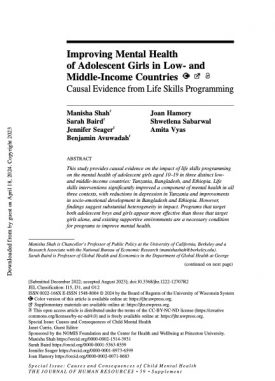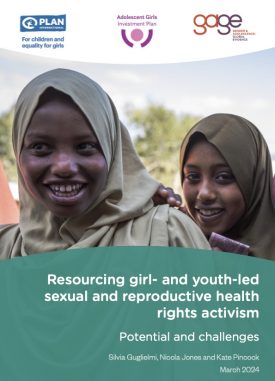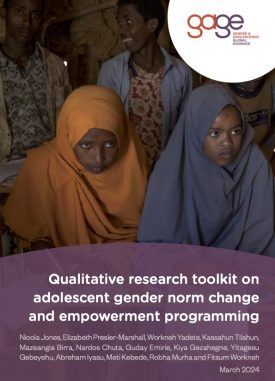Despite progress, more than 16 million adolescent girls become mothers each year, nearly all of whom live in developing countries and are married at a young age. The social and economic costs of child motherhood are immense, from premature school dropouts and limited life opportunities, to heightened risk of maternal and infant illness and death.
Ahead of the Family Planning Summit 2017, this briefing paper argues that the global response to family planning must put adolescent girls at its centre, with investment and prioritisation at the scale of the HIV pandemic response to urgently accelerate progress.
Figures suggest international donors provide more than $8 billion annually to stop the spread of HIV. By contrast, in 2014, the Family Planning 2020 global partnership had secured just $1.4 billion to ensure girls and women have access to lifesaving contraceptives.
This briefing paper is co-authored by GAGE and the Overseas Development Institute.
Suggested citation
Presler-Marshall, E. and Jones, N. (2017) ‘Family planning: the adolescent imperative, ODI Policy briefing.’ Policy brief. London: Overseas Development Institute & Gender and Adolescence: Global Evidence. (https://www.gage.odi.org/publication/family-planning/)


